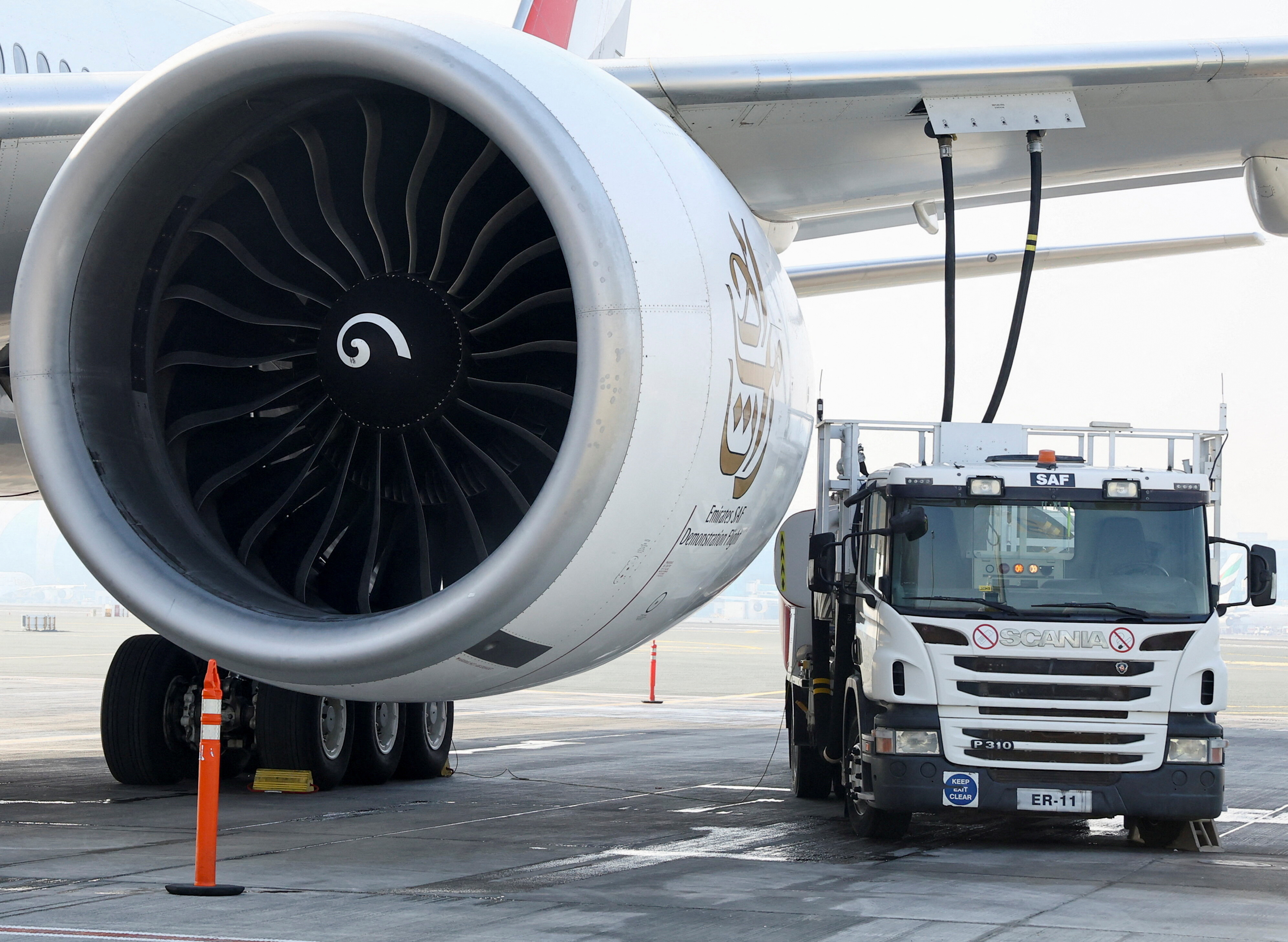Nord Stream, Bangladesh's power blackout and emergency measures: What to know about the global energy crisis this week

Energy crisis: The malfunctioning of Bangladesh’s power grid led to blackouts across 75-80 percent of the country. Image: REUTERS/Mohammad Ponir Hossain
Roberto Bocca
Head, Centre for Energy and Materials; Member of the Executive Committee, World Economic ForumListen to the article
This article was updated on 5 October.
- This weekly round-up brings you the latest on developments in the global energy sector.
- Top energy stories: The EU approves an energy windfall tax, oil prices rise ahead of OPEC+ talks, and investigations continue into gas pipeline leaks in the Baltic Sea.
- For more on the World Economic Forum’s work in the energy space, visit the Energy, Materials, Infrastructure Platform.
1. News in brief: Energy stories from around the world
Large areas of Bangladesh were without electricity on Tuesday (4 October) evening after a grid failure. Bangladesh gets three-quarters of its electricity from imported natural gas and has struggled with power cuts this year as a result of higher demand. "The current energy crisis caused by the war in Ukraine has put a crunch on supply, causing the government to enact emergency measures to reduce energy use," explained Sheikh Tanjeb Islam, Head of Event Editorial at the World Economic Forum.
Investigations are underway into what caused major leaks in the Nord Stream 1 and 2 pipelines in the Baltic Sea. Both the European Union and Moscow say they suspect sabotage was behind the incidents on the gas supply routes from Russia to Germany. The pipelines were not in use at the time, but gas bubbles were seen rising to the ocean surface. Russia’s Gazprom says gas has stopped leaking and it may be possible to resume supply through a remaining line.

Germany’s network regulator says household gas consumption is too high to be sustainable. Usage by households and small industry was 483 gigawatt hours last week, up 14.5% above the average for that week over the past four years. "Without significant savings in the private area of consumption, it will be difficult to avoid an emergency situation in winter," says agency president Klaus Mueller. The German government says it will spend $196 billion on a “defensive shield” to protect citizens from soaring energy prices.
Norway’s national power grid operator is warning against restricting electricity exports. Statnett says this could lead to similar measures being imposed by others. Hydropower makes up over 90% of Norwegian electricity production, but the driest 12-month period for 26 years has depleted reservoir levels and sent prices soaring, according to Reuters.
An Australian state has unveiled a $40 billion clean energy plan to reduce reliance on coal. Queensland says it will source 70% of its energy needs from renewable sources by 2032 and 80% by 2035. Its previous target was 50% by 2030. The 10-year plan is the “biggest commitment to renewable energy in Australian history,” says state Premier Annastacia Palaszczuk.
Qatar’s energy minister says surging energy prices are draining support for the drive towards green energy. “Many countries, particularly in Europe, which had been strong advocates of green energy and carbon-free future have made a sudden and sharp U-turn,” said Saad al-Kaabi, who’s also CEO of QatarEnergy.
Strikes are continuing to disrupt France’s oil refining operations. More than 60% of the country’s refining capacity, amounting to 740,000 barrels per day, are now offline, according to a Reuters estimate. Sites run by TotalEnergies and ExxonMobil have been affected by the industrial action.
2. EU states back energy windfall levies, but remain divided over a gas price cap
EU member states have approved a package of emergency measures to help tackle the continent’s energy crisis. The 27 countries are scrambling to contain an energy price surge that is fuelling high inflation and threatening a recession. The agreement will see EU countries impose windfall profit levies on energy companies. It would also tap revenues that low-cost power producers make from surging electricity costs.
Many countries are also pushing for further action, including a cap on gas prices. However, some states such as Germany, the Netherlands and Denmark are opposed to this. The European Commission has also said this would be complex to enact and would require “significant financial resources”.
Europe is heading into winter with fears growing of potential energy shortages. Russia has cut gas supplies in retaliation for Western countries imposing tough economic sanctions on Russia over its military action in Ukraine.
How is the World Economic Forum facilitating the transition to clean energy?
3. Oil prices rise as OPEC+ considers output cut
Oil prices rose on 3 October, as OPEC+ considered cutting output by more than a million barrels a day in a bid to support the market, according to Reuters. Both Brent and WTI benchmarks had rebounded by more than 4% by lunchtime.
If agreed at a meeting on 5 October, it would be OPEC+’s second monthly cut after it reduced output by 100,000 bpd last month. However Reuters reports that the effect on supply will be lower than the headline number as the group’s members are producing a lot less than their quotas.
Oil prices have fallen for four straight months, with rising interest rates and a strong US dollar weighing on global financial markets. COVID-19 lockdowns in China have also dampened demand.
To learn more about the work of the Energy, Materials, Infrastructure Platform, contact Anne Therese Andersen: AnneTherese.Andersen@weforum.org
Don't miss any update on this topic
Create a free account and access your personalized content collection with our latest publications and analyses.
License and Republishing
World Economic Forum articles may be republished in accordance with the Creative Commons Attribution-NonCommercial-NoDerivatives 4.0 International Public License, and in accordance with our Terms of Use.
The views expressed in this article are those of the author alone and not the World Economic Forum.
Stay up to date:
Energy Transition
Forum Stories newsletter
Bringing you weekly curated insights and analysis on the global issues that matter.
More on Energy TransitionSee all
Ginelle Greene-Dewasmes
November 18, 2025






